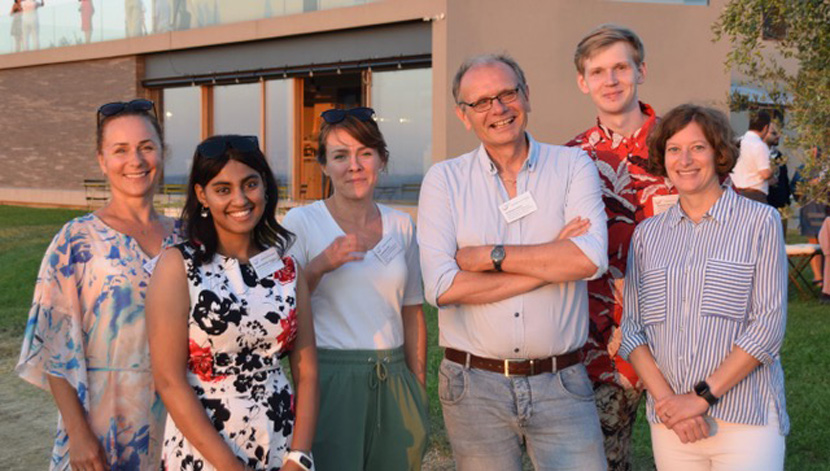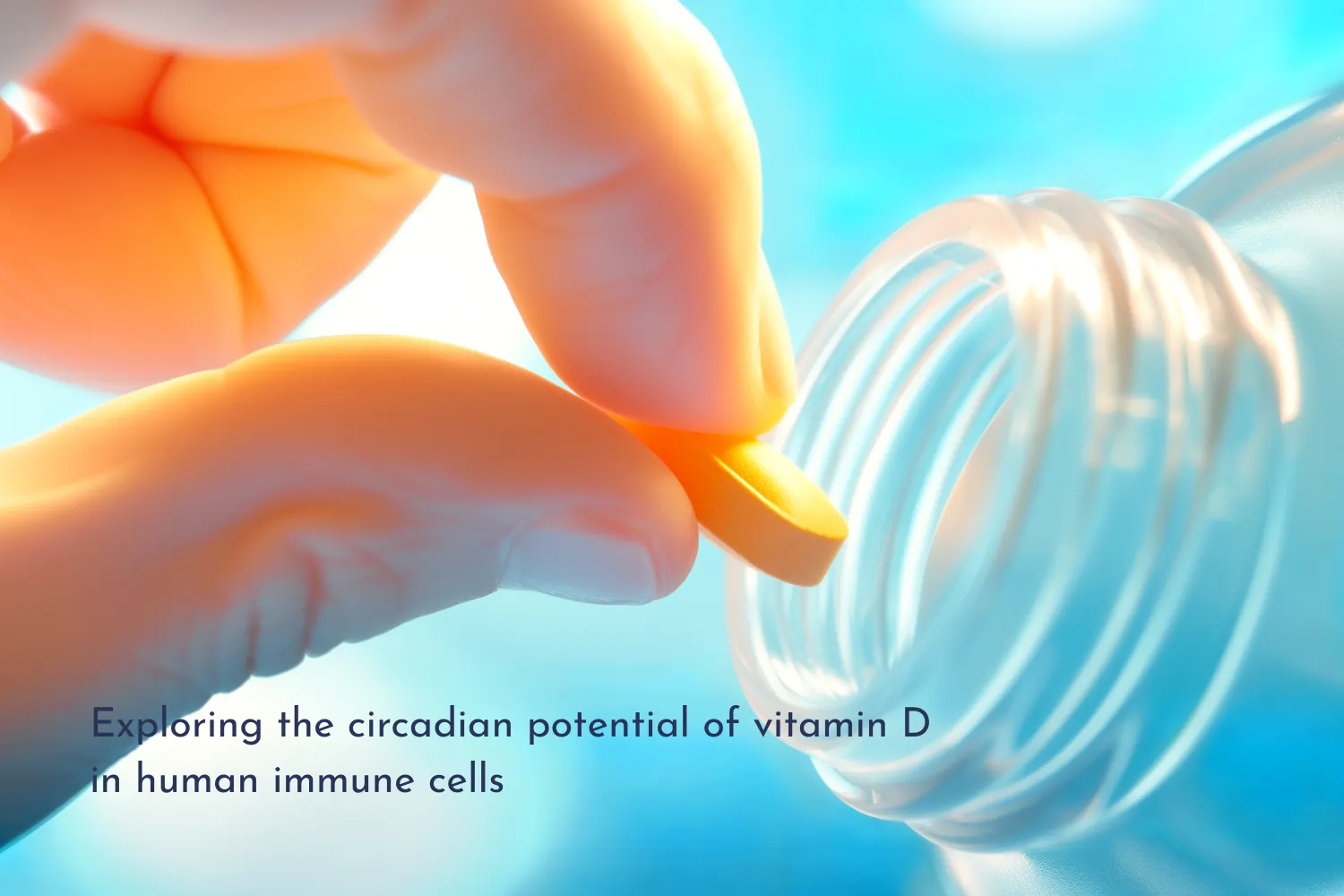Studies have found that low status of micronutrient vitamin D is associated with an increased risk of cardiovascular disease and all-cause mortality; vitamin D₃ boosts the responsiveness of innate immunity and presents overreactions of adaptive immunity; vitamin D target genes encode for proteins with a large variety of physiological functions – these are a few selected findings that the WELCOME2 team presented during the NuGO week event in September.
NuGO is an Association of Universities and Research Institutes focusing on the joint development of the research areas of molecular nutrition, personalised nutrition, nutrigenomics and nutritional systems biology. Each year the NuGO Association organises a conference called the NuGOweek. WELCOME2 joined the 19th edition, held in 2023 in Senigallia, Italy. This was a great opportunity not only to present their research, but also to network with scientists and experts from other research centres.
– NuGO week was a prestigious platform to showcase our work as well as to network with others working in the same field of research. As young researchers, we got the opportunity to learn important skills of public speaking, especially in such a professional environment, and from eminent researchers. During our poster presentations, we got to exchange ideas and received many helpful insights for further improvement. I am thankful to have been a part of the NuGO week – says Ranjini Ghosh Dastidar, PhD student in the WELCOME2 group.
WELCOME2 team presented their findings in a poster session. However, this was not the only activity at NuGO week 2023 in which our nutrigenomic team could present themselves. The two youngest members of the team – Maciej Rybiński and Ranjini Ghosh Dastidar – joined the NuGO Postgraduate Course.
– The course was a wonderful venture into GWAS (Genome Wide Association Studies) and introduced us to new tools and techniques like FUMA and Cytoscape. The learnings from the course can be used by us in our ongoing and future research and analysis. We are grateful for the opportunity of attending it – Ranjini summarizes.
POSTER SESSION – TO PRESENT, DISCUSS AND EXPLORE OPPORTUNITIES
Emilia Gospodarska: Intervention approaches studying the response to vitamin D supplementation
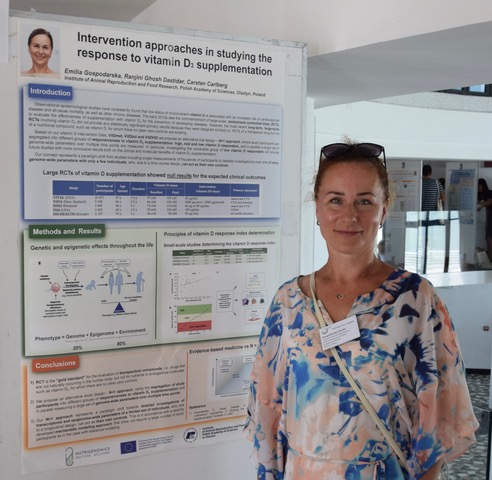
The most recent large-scale, long-term randomized controlled trials (RCTs) involving vitamin D did not provide any significant primary results. This is largely due to the fact that they are designed like RCTs of a therapeutic drug not of a nutriential compound. Vitamin D3 requires a specific trial design.
– Based on our vitamin D intervention trials we propose an alternative trial design, where study participants are segregated into different groups of responsiveness to vitamin D3 supplementation: high, mid and low vitamin D responders – says Emilia.
Ranjini Ghosh Dastidar: Vitamin D response index of healthy Saudis
Vitamin D₃ is a micronutrient that is essential for calcium homeostasis and proper bone formation as well as for an appropriately responding immune system. In presented by Ranjini study, WELCOME2 team challenged the concept of the vitamin D response index – which was developed in Finland and indicates that individuals can be segregated into low, mid and high responders to vitamin D₃ supplementation – by performing a single vitamin D₃ bolus (80.000 IU) intervention with a cohort of 100 healthy Saudis (50 males and 50 females). Interestingly, they identified a significantly higher percentage of low responders, as expected given that both populations are genetically rather different.
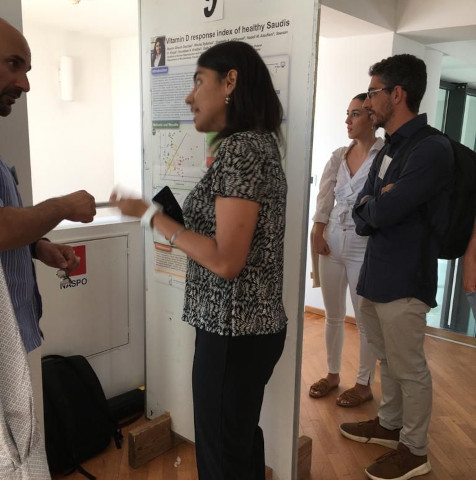
Dr. Julia Jarosławska-Miszkiewicz: In vivo regulation of signal transduction pathways by vitamin D stabilizes homeostasis of human immune cells and counteracts molecular stress
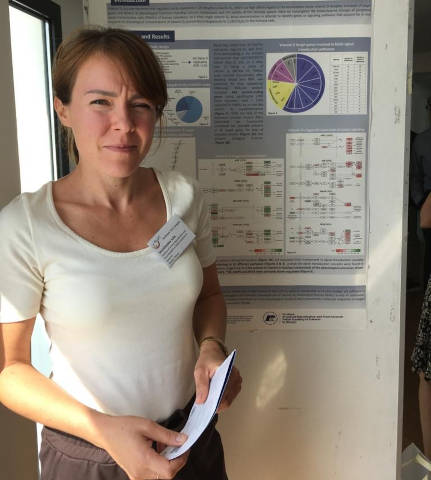
Vitamin D₃ is initially in an inactive form and is considered a pre-hormone. It needs to undergo conversion in the body to become active and perform its functions. Vitamin D₃, through its active form (1,25-dihydroxyvitamin D₃) plays a significant role in regulating various processes in the body, including calcium homeostasis and the activity of the immune system. The goal of the study presented by Julia was to identify genes or signalling pathways in immune cells that respond to physiological concentrations of vitamin D₃, which the body converts into its active form.
Dr. Marianna Raczyk: Vitamin D target genes related to energy metabolism identified by a human in vivo approach
The aim of the study presented by Marianna was to find target genes related to energy metabolism and characterise how they change the expression after vitamin D₃ supplementation. Metabolism is all the processes and mechanisms that take place in our living cells. As a result of these processes, we obtain the building elements and energy necessary for our body to function. Vitamin D target genes encode for proteins with a large variety of physiological functions, ranging from the control of calcium homeostasis, innate and adaptive immunity, to cellular differentiation.
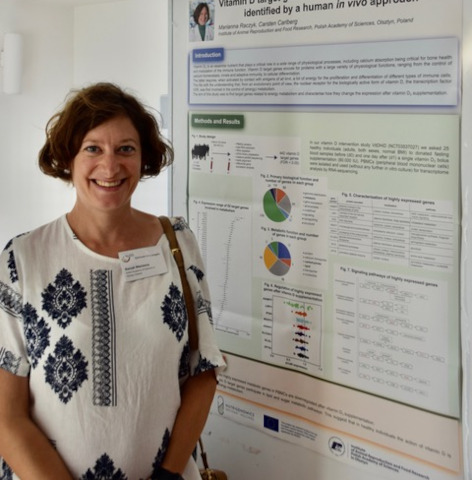
Maciej Rybiński: Epigenome-wide changes of chromatin accessibility in human immune cells in response to supplementation with vitamin D₃
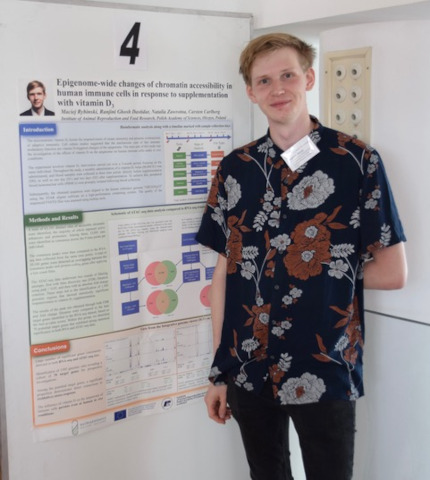
The main aim of the study presented by Maciej was the investigation of the effects of vitamin D on the epigenome on human immune cells under in vivo conditions. The experiment involves vitamin D₃ intervention carried out over a 3-month period, focusing on the same individual. Throughout the study, a monthly administration of a vitamin D₃ bolus (80,000 IU) was administered, and blood samples were collected at three time points: directly before supplementation, as well as one day and two days after supplementation.
